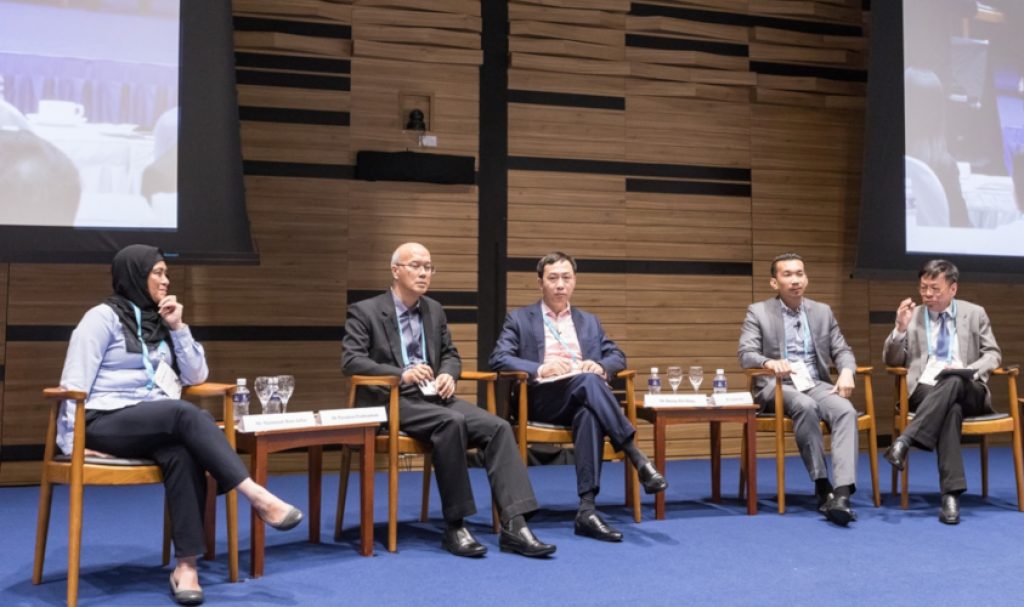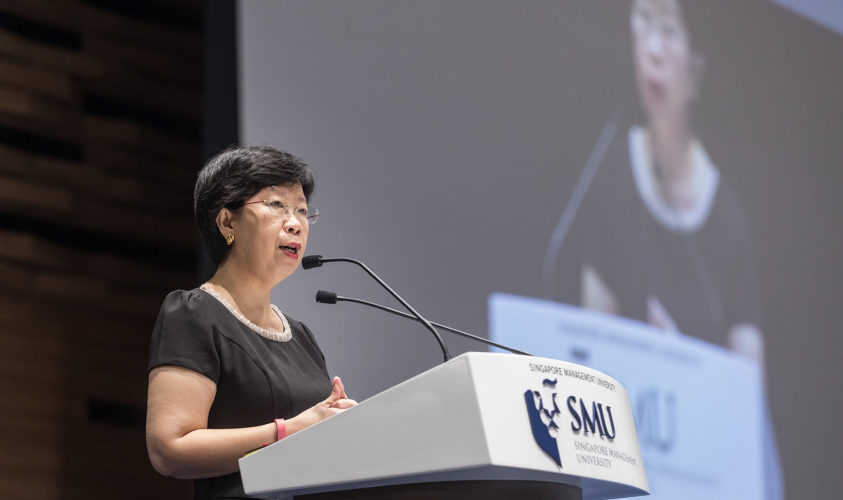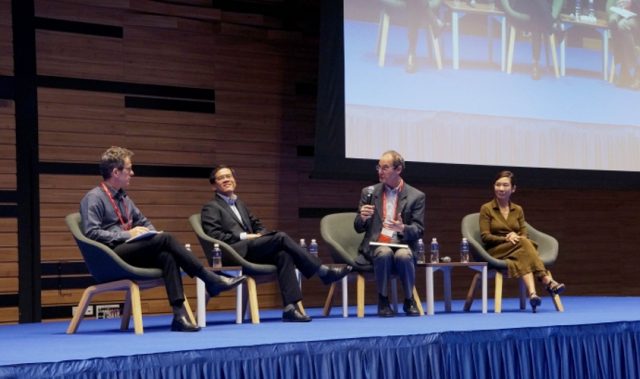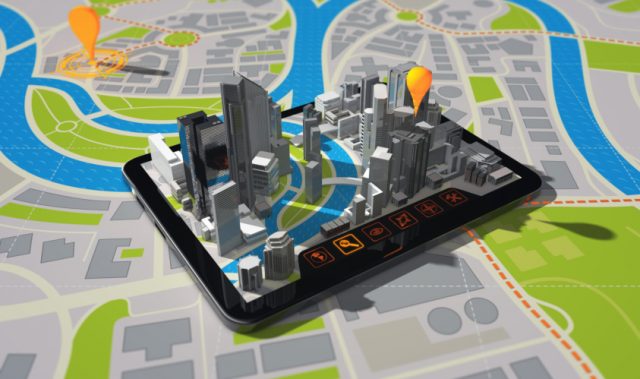
AsianScientist (Sep. 6, 2019) – By Sim Shuzhen – Lightning-speed internet, sprawling sensor networks and intelligent analytics, as any urban planner might tell you, are all essential components of smart cities. But these future-ready metropolises would do well to aspire to something more than the sum of their component technologies.

“A city is not just infrastructure and buildings; it is also a community and a living ecosystem… can a smart city also better address social problems like loneliness or inequality, or raise our civic-mindedness and reduce barriers between people from different communities?” asked Ms Mandy Mok, CEO, QS Asia Quacquarelli Symonds.
Achieving such lofty goals requires talent and knowhow, both of which universities have in abundance, added Ms Mok, speaking at a QS in Conversation seminar organised by Singapore Management University (SMU) and QS Asia on the theme of ‘University-Public Sector Partnerships: Smart Cities’. Held at the SMU School of Law from 3-5 October 2018, the seminar considered how institutes of higher learning, governments and industry can work together towards the creation of truly smart cities.
SMU and the smart city
The theme of the seminar was very deliberately chosen, said Professor Lily Kong, Provost and President Designate, SMU, in her welcome remarks.
“[SMU] believes in working together with different stakeholder groups on issues and challenges that confront us as a city state.”

As part of its efforts to make impactful societal contributions and support Singapore’s Smart Nation initiative, SMU recently launched an interdisciplinary undergraduate major in Smart-City Management & Technology, a collaboration between the School of Information Systems and the School of Social Sciences, said Professor Kong.
Alongside this new curriculum, SMU students and faculty are also deeply involved in smart city-related research that bridges technology and the social sciences, emphasised Professor Kong. The SMU-Tata Consultancy Services iCity Lab’s SHINESeniors project, which has developed an Internet-of-Things platform to support aging in place for elderly citizens living alone, is one of many such initiatives, she added.
“This type of public-private-education sector conversation can only enhance the dialogue and push the agenda forward [on smart cities],” summed up Professor Kong.
Different paths, a common platform
No two cities are alike, and hence each will have to find its own path towards digitisation, agreed a panel of representatives from the ASEAN Smart City Network (ASCN). Spearheaded by Singapore, the ASCN provides a collaborative platform for cities to exchange ideas and share best practices, said Mr Ong Eng Kian, Director, Centre for Liveable Cities, Singapore, who moderated the discussion.
In Phuket, Thailand, for example, tourists far outnumber locals, making public safety a top priority, said Dr Passakon Prathombutr, Senior Executive Vice President and Chief Technology Officer, Digital Economy Promotion Agency and chief smart city officer of Phuket, adding that the city is exploring ways to expand its surveillance camera network and image analytics capabilities.
When cities form strategic collaborations with universities, both sides benefit, said Ms Maimunah Jaffar, Head of Department, planning and compliance, Iskandar Regional Development Authority, Malaysia.
“Universities can help regions like Iskandar Malaysia come up with solutions to the challenges we are facing, and at the same time the university will have real case studies,” she explained.
Universities are also critical for equipping students and city officials with the skills to take on new roles in the ongoing Fourth Industrial Revolution, said Mr Duong Hai Hung, Deputy Director General, ASEAN department, Ministry of Foreign Affairs, Vietnam. One way to do this is to update established majors such as architecture, construction and urban studies by integrating smart city-related courses into the curriculum, he added.
For Mr Vannak Seng, Chief of Administration, City Hall of Phnom Penh, Cambodia, smart city initiatives would benefit from involving universities from the very beginning.
“[We need to] open our doors, our projects and our data to academics, who have ideas and expertise. This is valuable for public projects,” he said, cautioning that cities should, at the same time, be careful about granting the private sector too much access at the start. “This is a crucial time when our city has to think about planning and with whom; our partnership with academia is really crucial.”
Asian Scientist Magazine is a media partner of the Singapore Management University Office of Research & Tech Transfer.
———
Copyright: SMU Office of Research & Tech Transfer. Read the original article here; Photo: Singapore Management University.
Disclaimer: This article does not necessarily reflect the views of AsianScientist or its staff.












